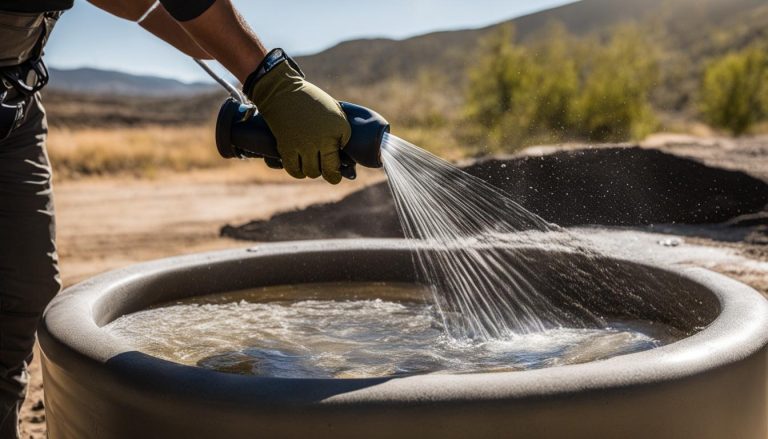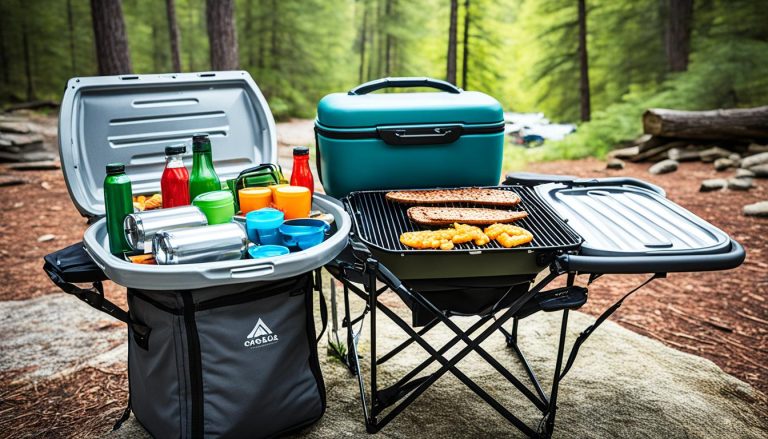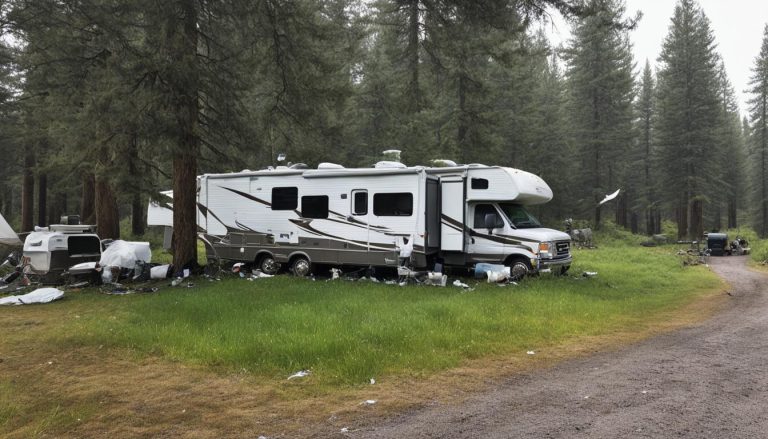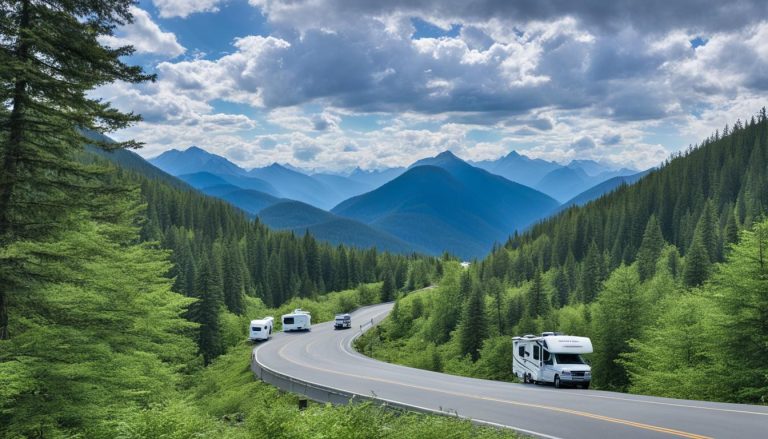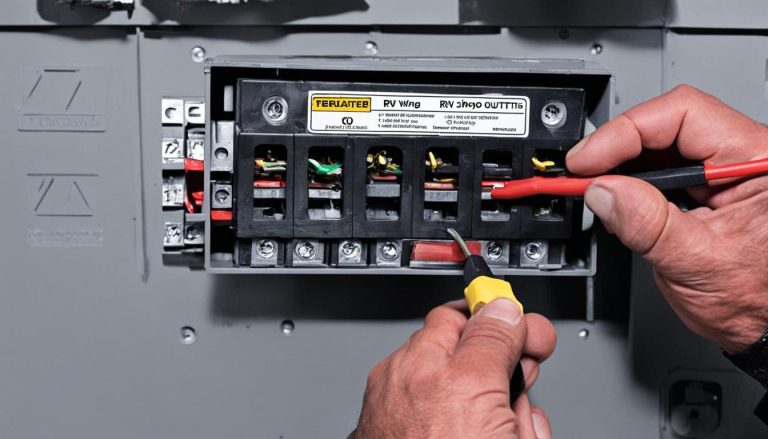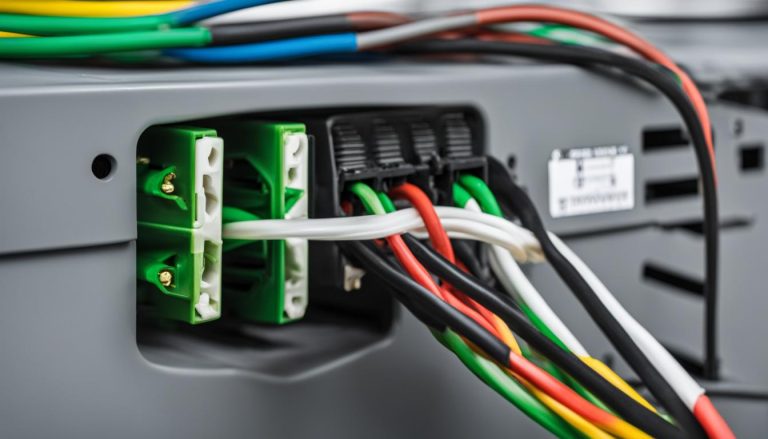Embrace Adventure: What is RV Boondocking?
gorvlifestyle.com and its partners may earn a commission if you purchase a product through one of our links
Are you looking for a unique and immersive camping experience? RV boondocking might be just what you need. Boondocking is a style of camping in an RV that involves camping without access to electricity, water, or sewage hookups. It allows you to embrace nature’s tranquility and find peace in the great outdoors.
RV boondocking can be enjoyed in various ways, such as camping in national forests, on public lands, or in the parking lots of RV-friendly businesses. It offers affordability, convenience, and the opportunity to experience unparalleled vistas and closeness with nature. However, it does require some planning in advance to find safe and legal locations, maintain water and energy supplies, and conserve resources.
Key Takeaways:
- RV boondocking is a style of camping in an RV without access to electricity, water, or sewage hookups.
- It offers affordability, convenience, and the opportunity to connect with nature.
- Planning is crucial to find safe and legal locations and manage resources effectively.
- Consider using resources like RV Trip Wizard, AllStays, Harvest Hosts, Boondockers Welcome, and OvernightRVParking to plan your boondocking trips.
- RV boondocking provides a unique way to embrace nature’s tranquility and find peace in the great outdoors.
Understanding Boondocking: Camping Without Conventional Hookups
Boondocking in an RV is a unique way to immerse yourself in nature without relying on traditional campground amenities. When you go RV boondocking, you camp without access to electricity, water, or sewage hookups. It offers the freedom to explore remote locations, enjoy breathtaking landscapes, and experience a closer connection with nature. Whether you spend a night in parking lots, set up camp on public lands, or join organizations like Harvest Hosts and Boondockers Welcome, boondocking allows you to embrace a more rustic and adventurous camping experience.
For most RVers, boondocking refers to camping in national forests, Bureau of Land Management areas, or other public lands. This form of boondocking, also known as wild, primitive, or dispersed camping, provides ample space to spread out and a chance to truly disconnect from the hustle and bustle of everyday life.
“Boondocking offers the freedom to explore remote locations, enjoy breathtaking landscapes, and experience a closer connection with nature.”
To ensure a successful boondocking experience, careful planning is essential. You need to find safe and legal boondocking locations and have a sufficient water supply, energy source, and waste management system in place. Let’s dive deeper into how to do RV boondocking and what beginners need to know.
Where to Boondock
When it comes to boondocking, the options are plentiful. Here are some popular choices:
- National Forests
- Bureau of Land Management (BLM) areas
- State and county parks
- Wilderness areas
- Public lands managed by the U.S. Fish and Wildlife Service
- Organizations like Harvest Hosts and Boondockers Welcome
Each location has its own set of rules and regulations, so it’s essential to research and understand the specific requirements and limitations before embarking on your boondocking adventure.
Essentials for Boondocking
Before hitting the road, make sure you have the following essentials for a successful boondocking trip:
- Water Management: Carry enough water for drinking, cooking, and cleaning. Additionally, consider ways to conserve water to extend your supply.
- Power: Use solar panels, generators, or alternative power sources to charge your RV batteries and run appliances.
- Waste Management: Properly dispose of your waste at designated dump stations and follow Leave No Trace principles to minimize your impact on the environment.
By planning ahead and having the right equipment and mindset, you can enjoy the freedom and adventure that RV boondocking offers.
The Best Season for Boondocking: Enjoying Nature in Ideal Weather
When it comes to boondocking in an RV, choosing the best season to embark on your adventure depends on your personal preferences for climate and location. While boondocking can be enjoyed year-round, certain seasons offer more favorable conditions for RVers seeking the perfect outdoor experience. In this section, we’ll explore the ideal seasons for boondocking and highlight some of the best boondocking locations for RVs.
Spring: Blooming Landscapes and Comfortable Weather
Spring is often considered an optimal season for boondocking. As nature awakens from winter’s slumber, you’ll be rewarded with lush greenery, vibrant flowers, and blooming landscapes. The weather during spring is typically mild, with comfortable temperatures that make outdoor exploration enjoyable. Before the scorching heat of summer arrives, spring allows RVers to savor the beauty of nature without battling extreme temperatures.
Fall: Stunning Foliage, Cooler Temperatures, and Fewer Crowds
Another excellent season for boondocking is fall. As the leaves change color and create a breathtaking symphony of reds, yellows, and oranges, RVers can revel in the stunning foliage that autumn brings. Fall offers the advantage of cooler temperatures, making it an ideal time for outdoor activities like hiking, biking, and wildlife spotting. Additionally, boondocking during the fall months often means encountering fewer crowds and having more serene natural spaces to yourself.
While spring and fall are generally considered the best seasons for boondocking, it’s important to research specific destinations and their weather patterns. Different regions may have unique seasonal characteristics, and understanding them will help you make an informed decision about where and when to embark on your boondocking adventure.
To assist you in finding the best boondocking locations for RVs, we have compiled a list of some popular destinations:
| Destination | Region |
|---|---|
| Moab, Utah | Southwest |
| Sequoia National Forest, California | West Coast |
| Asheville, North Carolina | East Coast |
| Mount Hood, Oregon | Pacific Northwest |
| White Mountains, New Hampshire | Northeast |
These destinations offer breathtaking scenery, outdoor recreational activities, and an opportunity to disconnect and immerse yourself in nature’s beauty.
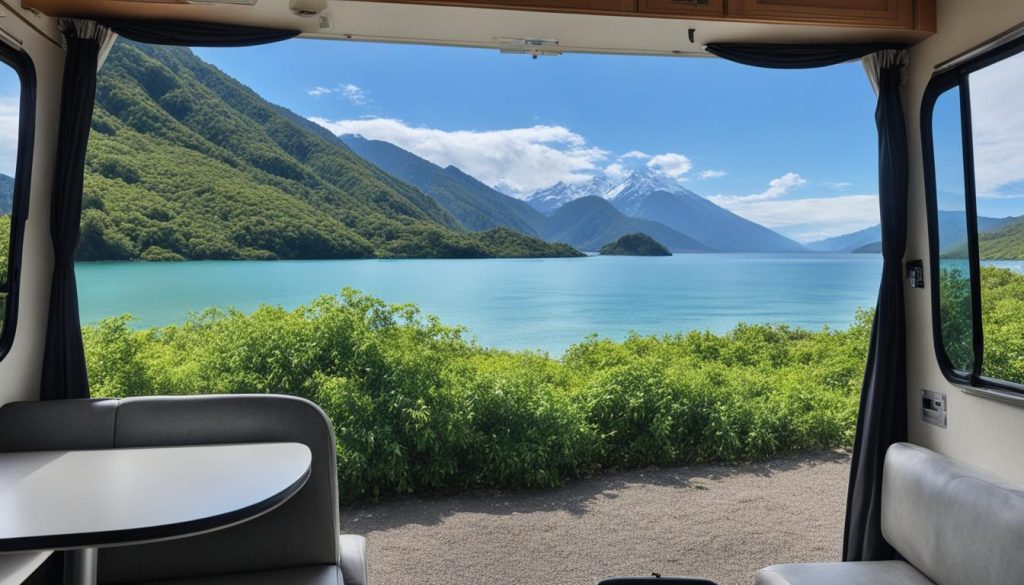
When planning your boondocking adventure, remember to pack the essential items to ensure a smooth and enjoyable experience. Here are some boondocking essentials for RVers:
- Portable solar panels or generators for electricity
- Water containers or a water filtration system
- Campfire cooking equipment
- Outdoor camping gear
- First aid kit
- GPS or map for navigation
- Extra fuel and propane
By being well-prepared with these boondocking essentials, you’ll have peace of mind knowing you can fully embrace the freedom and tranquility of RV boondocking.
Tips for Successful RV Boondocking: Planning and Preparation
Successful RV boondocking requires careful planning and preparation. To ensure a smooth boondocking experience, it’s essential to follow these tips:
1. Pre-Departure Checklist
Before hitting the road, make sure to complete a pre-departure checklist. This checklist should include:
- Filling the fresh water tank to ensure an adequate water supply during the trip.
- Ensuring a sufficient propane supply for cooking, heating, and other appliances.
- Checking the battery charge to avoid unexpected power issues.
2. Water Management
Water conservation is crucial when boondocking. Here are some tips to help you conserve water:
- Fill your fresh water tank as close to the boondocking site as possible to minimize carrying extra weight.
- Carry extra drinking water in containers to prevent the need for frequent tank refills.
- Use biodegradable utensils to reduce water usage for washing dishes.
3. Sewage Management
Proper sewage management is essential for responsible boondocking. Follow these guidelines:
- Monitor your tank levels regularly to prevent overflows.
- Dispose of sewage at designated dump stations to protect the environment.
4. Navigating Without Electricity
Being prepared to navigate without electricity will enhance your boondocking experience. Consider these options:
- Use RV battery power wisely by conserving power and only using essential appliances.
- Consider investing in portable power stations or solar panels to recharge your batteries.
- Use generators sparingly and be mindful of noise levels to respect the tranquility of the surrounding environment.
5. Utilize RV Boondocking Resources
Take advantage of the various resources available to assist you in finding boondocking locations and planning your trips. Some popular resources include:
- RV Trip Wizard
- AllStays
- Harvest Hosts
- Boondockers Welcome
- OvernightRVParking
These resources provide valuable information about boondocking locations, amenities, and safety considerations.
With proper planning and preparation, you can enjoy a safe and fulfilling RV boondocking experience. By following these tips and utilizing the available resources, you’ll be well-equipped to embrace the freedom and adventure that boondocking offers.
The Joys of RV Boondocking: Privacy, Serenity, and Connection with Nature
RV boondocking is a liberating experience that offers an array of benefits for adventurous travelers like yourself. One of the greatest joys of boondocking is the unmatched privacy it provides. You can escape crowded campgrounds and enjoy the seclusion of remote locations, allowing you to fully unwind and recharge in peaceful solitude.
By immersing yourself in the tranquility of nature, boondocking offers a serene getaway from the noise and busyness of everyday life. Imagine waking up to the soothing sounds of chirping birds or falling asleep under a blanket of stars. Boondocking allows you to disconnect from modern distractions and embrace the simple pleasures of nature.
In addition to privacy and serenity, RV boondocking grants you the opportunity to immerse yourself in uncluttered scenery. Whether it’s waking up to breathtaking mountain vistas or camping by a pristine lake, boondocking offers awe-inspiring landscapes that you can have all to yourself. The freedom to explore diverse terrain, witness stunning natural wonders, and capture unforgettable sunsets is yours to enjoy.
While RV boondocking requires adjustments and careful resource management, the benefits of this lifestyle are immeasurable. It allows you to forge a deeper connection with nature, find solace in its beauty, and create cherished memories that will last a lifetime. So, pack your sense of adventure, follow our RV boondocking tips, and embark on a journey that promises unparalleled privacy, serenity, and a profound connection with the great outdoors.
FAQ
What is RV boondocking?
RV boondocking is a style of camping in an RV that involves camping without access to electricity, water, or sewage hookups. It allows RVers to camp in remote locations such as national forests or public lands.
How do I do RV boondocking?
To do RV boondocking, you need to find safe and legal locations, ensure a sufficient water supply, manage energy resources, and dispose of waste properly. Planning and preparation are key for a successful boondocking experience.
When is the best season for RV boondocking?
The best season for RV boondocking depends on your preferences for climate and location. Generally, spring and fall offer pleasant temperatures and are ideal for boondocking in various regions. However, specific destinations should be researched for their weather patterns.
What are some essential tips for successful RV boondocking?
Some essential tips for successful RV boondocking include filling the fresh water tank, ensuring sufficient propane supply, checking the battery charge, conserving water, managing sewage properly, and considering alternative power sources or generators.
What are the benefits of RV boondocking?
RV boondocking offers benefits such as privacy, serenity, uncluttered scenery, and a deeper connection with nature. It allows RVers to escape crowded areas and immerse themselves in the tranquility of remote locations.

